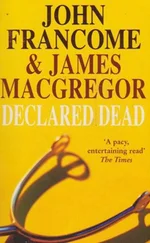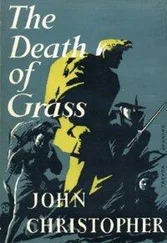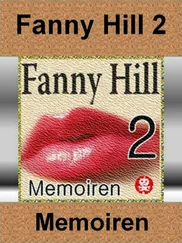“Sure. What’s up?” I asked.
“I wanted to show Fred the catalogues.”
I gestured to the wall of shelves. “Go to it.”
I listened as she explained how we organized them. “We have a lot of catalogues of local dealers. It makes sense, since we all tend to carry similar merchandise.”
“Can you rely on them?” Fred asked. A good question , I thought.
“Well, it depends,” Sasha answered. “Like anything else.”
As they started to leave, I asked if they were done with the video, and Sasha said, “Part of it. Fred wants to study it, so I thought I’d show him how we typically research things while we wait for you. Then he can take his time reviewing the tape.”
“Good,” I said. “I’m ready if you guys are.”
They moved chairs near my desk and I went through the steps I’d delineated as I took him through the binder. He nodded and scanned the pages.
“Is this one of the local dealers?” he asked, pointing to the Troudeaux title page.
“Yes,” I said.
“But we don’t think very highly of their research,” Sasha added, twirling her hair. “I mean we use them, but I’d want additional verification.”
“That’s true,” I acknowledged. “Martha Troudeaux does most of their research, and it’s often sketchy and sometimes just dead wrong.”
“Who’s this?” Fred asked, pointing to the editor’s name: M. Turner.
I was about to say that I didn’t know, when Sasha jumped in. “That’s Martha, too. Sometimes she uses her maiden name-Turner. I think it’s to make the company look larger, you know, not a mom-and-pop outfit with everybody in the firm sharing the same name.”
Staring at the page, my mouth fell open. In a flash of clarity, the pieces of the puzzle fell into place. Barney, whose wife, Martha, did most of his research. And who sometimes used her maiden name-Turner. I pictured him at the tag sale, deep in conversation with Paula. Paula Turner. I was willing to bet that Paula was Barney’s niece by marriage. That would explain the call that Wes had told me about, the one made from the Taffy Pull to Mr. Grant. No one in the family would think it was odd for Barney to stop by his wife’s family’s store and borrow the phone.
Roy, the picker, had said that Barney didn’t have the cash to buy the books. And a relatively small amount of cash it was. Less than a thousand dollars. Which must mean that Barney was broke. If Barney was broke, how could he afford the Renoir he’d intended to buy from Mr. Grant?
Maybe he hadn’t had any such intention. Perhaps he hadn’t wanted the Renoir for pride of ownership or even for the commission a sale would bring. The Renoir might have represented a second chance, a way of raising enough cash quickly to save his business, to protect all that he had built up.
I realized that Sasha and Fred were engaged in a lively discussion about verifying research, and I’d missed it all.
“I think we’re all set here,” I said. “Any questions?”
“No,” Fred said. “This is all very useful.”
“Great. Well, go and do.”
They left, still chatting. I’d never heard Sasha speak so much, or with so much enthusiasm. Maybe she’d met her match in Fred.
As their voices faded away, I thought of Mr. Grant, and sadness swept over me. In all of our interactions, he’d been jovial, gregarious, and kind. I’d liked him, and he’d liked me. An image of Barney came to mind. I could picture him towering over the older, weaker man.
I shivered, upset and dispirited. How could he have clone such a thing ? I began to cry, and I didn’t try to stop myself. Tears rolled down my cheeks and as they fell, I concluded that I needed to speak to Alverez.
To think that Barney had killed Mr. Grant in order to steal the Renoir. I shook my head, astonished that I hadn’t realized it before, and sickened at the thought.
By the time Alverez called back, about an hour later, I’d remembered what Max had said about not volunteering information, and had thought better of telling him what I knew about Barney. Instead, I simply stuck with the original reason for my call and said that I was done with the research and had the pricing information he’d wanted.
“Can you meet in an hour?”
I glanced at the clock. It was only 9:30. “Sure,” I answered. “If Max can.”
“I’ll expect you here at ten-thirty then, unless I hear otherwise.”
“Okay,” I agreed, wondering whether I was imagining the urgency I perceived in his voice or whether, now that I had the information he needed, he was ready to act.
I reached Max at his office, and he told me that he could meet me at the police station at 10:30.
“Can we meet at ten-fifteen?” I asked. “I’d like to talk to you first.”
“Sure,” he said. “Our usual dune?” he asked in a joking tone of voice. “When we’re not in interrogation room two?”
I laughed. “Perfect.”
Passing through the office, I overheard Gretchen inviting someone on the phone who had, according to her, “an old set of flatware,” to stop by. An “an old set of flatware” could mean anything from two dozen fifteen-piece sterling silver place settings from Victorian England to a set of sixteen pieces of stainless steel from the ’70s.
Sasha and Fred were absorbed in a discussion about the use of a table’s height to validate its age. Sasha thought height was one of many factors that should be considered, but wasn’t a particularly reliable indicator.
“Not everyone in prior generations was short!” she argued.
“But all standard furniture was made as if they were,” Fred responded.
“So maybe the table was custom-made.”
“Well then, we would recognize that it was a custom piece, and consider whether the owner’s height was a factor.”
“What if someone simply sawed down the table legs?” she asked.
“What if the man in the moon made the table? Don’t be frivolous,” he said dismissively.
Frivolous? I repeated silently. Sasha ? I shook my head, braced for her reaction. Not only was Sasha not frivolous-ever-but she took her work so seriously that any implication otherwise was more than an insult, it was an indictment. Tears, I figured. Or pained humiliation marked by long silences and an inability to meet Fred’s eyes ever again.
Instead, she chuckled. I stared, shocked that she’d laughed. “I wasn’t being frivolous,” she said, a bubble of laughter in her voice. “Facile, maybe. But not frivolous.”
Fred laughed, too. They were becoming friends. They shared rapport. Astonished, I shook my head. How little I knew of people, I mused.
“You both all set?” I asked, jumping in.
They turned to me as if they hadn’t really noticed that they weren’t alone.
“Yes,” Sasha said, blushing. “We’ll be going to the Grant house soon. Fred wanted to know if it was all right that he work evenings.”
“I’m kind of a night owl,” he explained.
“Sure,” I said, “no problem. How late do you think? Eleven? Midnight? Or are we talking all-nighters?”
He shrugged. “I don’t know.” He looked uncomfortable. “I’ve been known to pull all-nighters. But I don’t want to guarantee it. And if it’s a problem…”
“No, not at all. I’m just thinking of how we can arrange to lock up.”
“I’ll be working alongside him, so I can take care of the alarm,” Sasha offered.
“Are you okay with the late hours?” I asked her.
Another blush. “Sure. It’s just for a few days, and that way, the work will get done faster.”
Satisfied that the building wouldn’t ever be left unprotected, I said, “Great. Then I’ll leave it to you to coordinate schedules and hours and lock up each night. Okay?”
Читать дальше












